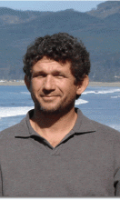Marine Aquaculture
Most animal and plant species used in agriculture were domesticated thousands of years ago. Marine aquaculture by contrast is a young endeavor. Challenges include the identification of suitable species, development of complete diets, control of parasites and pathogens, development of methods to accelerate reproduction and increase fertilization success, and limitation of environmental impacts, not to mention achieving a production rate that can turn a profit. Methods range from adaptation of techniques long established in animal husbandry to novel molecular genetics to identify and alter particularly useful strains. The incorporation of a marine aquaculture group in the School of Marine Sciences poises us particularly well in the quest for culture approaches that limit by site selection and multi-species culture the environmental degradation from eutrophication and over-use of antibiotics and that work with the environment rather than against it to channel production into target species. A novel effort on the UMaine campus develops aquaculture methods for tropical fishes as an alternative to decimating fish populations on tropical reefs. Although raising tropical fish in Maine may at first seem far fetched, it is an environmentally friendly choice because accidentally released fish have no chance of surviving locally in the wild.
Participating Faculty
-

Ian Bricknell, Ph.D.
Professor of Aquaculture Biology
207.581.4380
-

Teresa Johnson, Ph.D.
Professor of Marine Policy
207.581.4362
-

Heather Leslie, Ph.D.
Professor of Marine Sciences
207.563.8115
-

-

